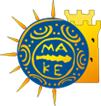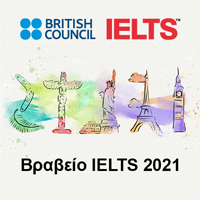Πρόσκληση για ομιλία του κ. Ιωσήφ Σηφάκη 01/03/2016
ΑΡΙΣΤΟΤΕΛΕΙΟ ΠΑΝΕΠΙΣΤΗΜΙΟ ΘΕΣΣΑΛΟΝΙΚΗΣ
ΣΧΟΛΗ ΘΕΤΙΚΩΝ ΕΠΙΣΤΗΜΩΝ
ΠΡΟΣΚΛΗΣΗ
Η Κοσμητεία της Σχολής Θετικών Επιστημών του Α.Π.Θ., σας προσκαλεί
στην ομιλία του διακεκριμένου Καθηγητή του Ecole Polytechnique
Federale de Lausanne (EPFL), Διευθυντή του Centre de Recherche
Integrative της Grenoble, ακαδημαϊκού που έχει τιμηθεί με το βραβείο
Τuring (αντίστοιχο των Νοbel στην πληροφορική) κ. Ιωσήφ Σηφάκη
με θέμα: "Is Computing a Science?"
που θα πραγματοποιηθεί την Παρασκευή 4 Μαρτίου 2016 και ώρα 11 π.μ.,
στην Αίθουσα Α31 της Σχολής Θετικών Eπιστημών του ΑΠΘ.
Η εκδήλωση είναι ανοιχτή για το κοινό.
Ο Κοσμήτορας της Σχολής Θετικών Επιστημών
Καθηγητής Χαρίτων Χιντήρογλου
Διάλεξη
Initially considered rather as applied technology, over the years
computing resisted absorption back into the fields of its roots and
developed an impressive body of knowledge. We discuss how computing is
related to other domains of knowledge and draw conclusions about the
very nature of the discipline.
Computing deals with the study of information processing.
Information is defined as a relationship between the syntax and the
semantics of a language. It is an entity independent from matter and
energy. It is not subject to space-time constraints. It is non
material, although it needs media for its representation.
Computing has developed as a domain of knowledge from prior
knowledge about computation based on mathematics and logic. In
contrast to physical sciences, it focuses on the design of artefacts.
The dominant paradigm is synthesis rather than analysis to understand
and predict phenomena. Nonetheless, both computing and physical
sciences share a common objective: the study of dynamic systems.
Physical phenomena can be understood not only through the study of
immutable laws, but also as computational processes. Physical systems
are inherently synchronous and driven by uniform laws. Computing
systems ignore physical time and are driven by specific laws defined
by their designers. Despite these differences, computing and physical
sciences are rooted in two common paradigms that characterize any
scientific approach. The first is the application of modularity
principles to cope with the inherent complexity of phenomena. The
second is the use of abstraction hierarchies of models that describe
phenomena at different levels of detail. We discuss similarities and
differences in the application of these paradigms.
A central problem in computing is the study of design as a formal
process leading from requirements to correct systems. Providing design
with scientific foundations raises several deep theoretical problems
including the conceptualization of needs using declarative languages,
their proceduralization and implementation. Additionally, design
“scientization” seeks the purposeful and coherent integration of
methods through the study of general semantic models, of expressive
component frameworks and most importantly, of theory for achieving
correctness-by-construction. This endeavor and its overarching goal
are both intellectually challenging and culturally enlightening. It is
at least as important the quest for scientific discovery in physical
sciences and nicely complements the effort for scientific progress and
its fruition.













